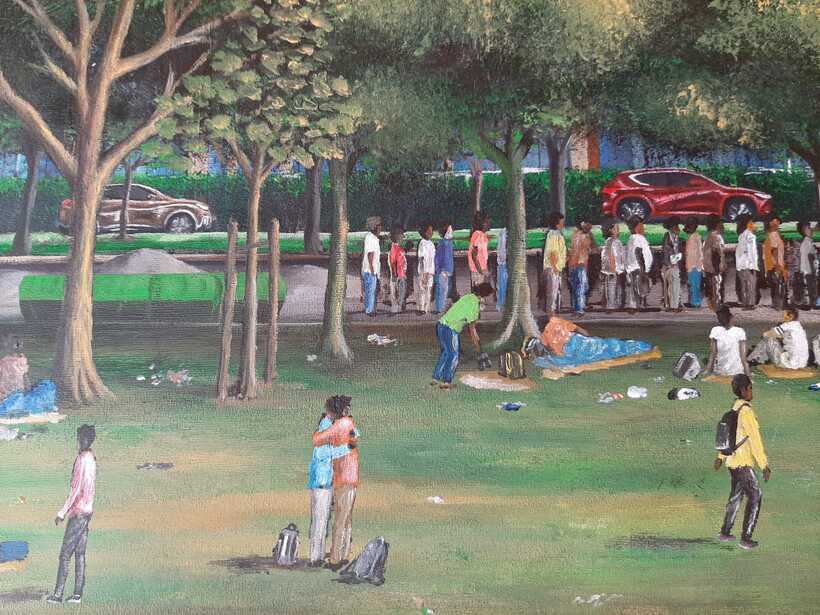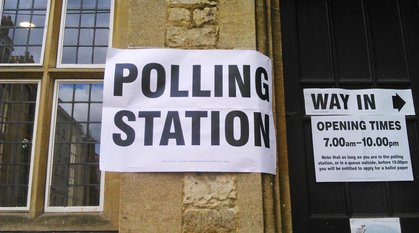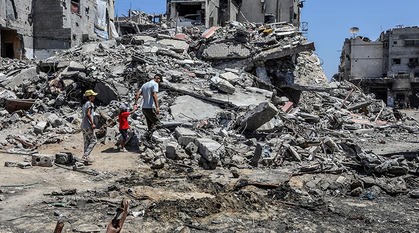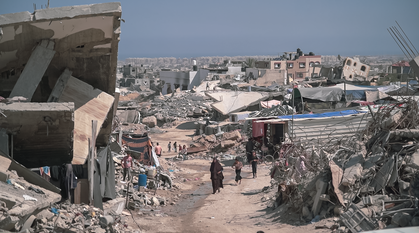Navigating uncertain waters: Covid-19 and inequality
Isolation, disruption and confusion have interrupted many of our lives. Kékéli Kpognon and Andrew Lane chart a way through by focusing on those who have been surviving these conditions for years.

Policies that show generosity towards asylum seekers make some European politicians very nervous, which is why some of what we have seen in Europe in the last few days is so remarkable. The deportation of asylum seekers is being suspended (Germany), immigration detainees are being released (Italy), homeless people are being housed (France), and some are being given temporary asylum (Portugal).
But rather than protect people from Covid-19, some governments are using the crisis for other purposes. We are seeing the right to claim asylum under European and international law being suspended (Greece), and the granting of new powers for a prime minister to rule by decree indefinitely (Hungary).
In other places marginalisation and violence continues or is being stepped up. Brussels has seen police operations against hundreds of people sleeping rough in a city park, a great many from Darfur and Eritrea. In addition to the usual harassment they've been chased with dogs across the city with no plan of where they should go, making their lives even harder, and likewise the job of health officials seeking to reduce the necessary movement of people.
Police violence and humiliation is now common in several parts of Europe, including on the Bosnia-Croatia border where 7,000 young people have been trapped in make-shift refugee camps over the winter, and a similar pattern is emerging on the Serbia-Romania border.
The Quaker Council for European Affairs (QCEA) is close to some of its intended beneficiaries – the people amongst us who are seeking sanctuary in Europe. Those of us who cannot simply just isolate. Those of us who long for the home they'd need in order to follow the instruction to 'Stay Home'. Those of us denied soap and water, and the right to protect ourselves from Covid-19. A continuation of a denial of safety in Europe.
A light on inequality
Many people were already living uncertain lives even before the current pandemic. Violence against women and girls is on the rise, with women and children confined with their abusers. The low-paid workers in essential jobs without the benefit of social protection.
Across Europe, citizens are experiencing temporary restrictive measures, longstanding fundamental freedom violations that were already a reality for some people in Europe and for many more across the world.
For everyone contributing to a culture of sanctuary, including Quakers, we must understand the risks of this moment. What impact will the closure of borders and suspension of the right to claim asylum in some parts of Europe have on the European psyche and on the public debate about asylum and migration?
Over the last few decades we have grown used to the presence of large charities, many with government funding. Once European governments think we have passed the peak of the Covid-19 infection, the political and financial priority will be economic reconstruction. Much of the charity sector will find itself near the end of the queue for funding, and especially those supporting the already marginalised.
While Covid-19 is shedding a stark light on the consequences of historical and structural inequalities, it is important to remember that individuals, communities and organisations have long been at work for more just, equal and sustainable societies. Seeds for new and transformative thinking on how to ensure human rights for all have already been planted by activists, solidarity groups and civil society groups worldwide. Now is the time to amplify and accelerate efforts that, up till now, were happening in the margins.
Beyond isolation
Many of us are isolated, but we are all devising ways of being together. People are singing together in Italy, and playing bingo on the balconies of blocks of flats in Ireland. Quakers are gathering across borders for online meetings for worship. This spirit is needed in our witness in the world.
This isolation has strengthened and renewed people's need for a place in a community, their place and everyone else's. It expresses the need and recognition of human goodness. As Quakers, we can see that so many people recognise each other's worth as their response to this crisis. Separation and self-interest – individual, nationalistic, international, political – has been commonplace until now.
We need to ensure that this does not become the norm again, and we can do this by being more intentional about including and listening to the many that have continued to be marginalised in recent decades.
The economic reconstruction to come is one more chance for transformation. Let's rebuild it carbon-free, let's rebuild it peaceful, and let's also work to rebuild it justly.
It's right to cry with the pain of it all. It's right to rest and look after ourselves and each other, and it's right to seek solace and guidance in meeting for worship. And in the stillness of worship, see what actions love might require of us.


